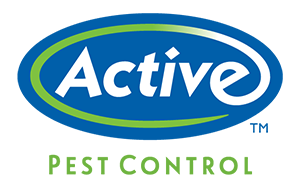When pests get into a home, they can cause all kinds of problems. They can eat away at the equity of your home, damage your belongings, leave bite wounds, spread diseases, and more. And, you, your spouse, and your kids aren’t the only ones that are affected by these invading bugs. Here are five pests that can also plague the furry family members.
FLEAS
We all know how maddening these tiny biters can be. Fleas are found in greater numbers in warmer areas where there is high humidity. According to the American Animal Hospital Association, just one flea can turn into 1,000 fleas inside a home in a brief 21 days. When infested, fleas cause pets to itch, twitch, scratch and dig. This can lead to hair loss, scabs and other dermatological issues. And a flea infestation can lead to a secondary pest problem like tapeworms.
TICKS
Ticks are becoming more and more of a threat as Lyme disease continues to rear its ugly head. And since pets tend to spend more time in the grass and forest areas than us, it is more of a threat to them. Ticks hang out in the choicest of places, just waiting for an unsuspecting warm-blooded creature to come along to attach to. Some of the more serious diseases that ticks can transmit to your pet include Rocky Mountain spotted fever, ehrlichiosis, babesiosis and, as mentioned, Lyme.
MOSQUITOES
Even our indoor pets are at risk, as mosquitoes can get inside, or bite through screens if pets are resting against them. Mosquitoes not only cause itchy red bumps but there are also some life-threatening diseases that we should be aware of. Heartworm and roundworm that can infect both cats and dogs, is a silent killer. Fortunately, it can be easily treated if caught in time. There is also West Nile virus and Saint Louis encephalitis, which attacks the brain.
BOTFLY
Also called Cuterebra, this fly hangs out in the grass and latches onto animals (much like the tick). Symptoms of a botfly infection include aggression, seizures, blindness and warbles (or lumps) on the skin. In cats, the Cuterebra larva typically travels to the brain!
SARCOPTES SCABIEI MITE
This mite causes a condition in pets called scabies, or mange. Although more of a nuisance than a threat, if open wounds occur, the body will be open to bacterial invasion.
Protecting our pets from the harmful effects of household pests is part of their essential care. Consider year-round pest control from Active Pest Control. Not only will you be protecting your pets, but your home and your family members as well. Contact us for a FREE inspection today.

